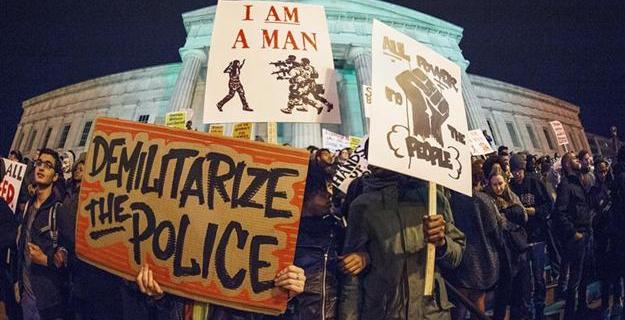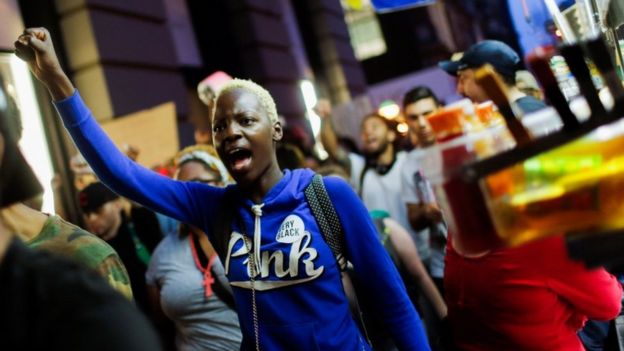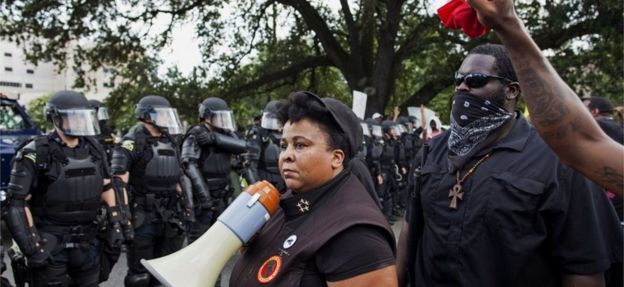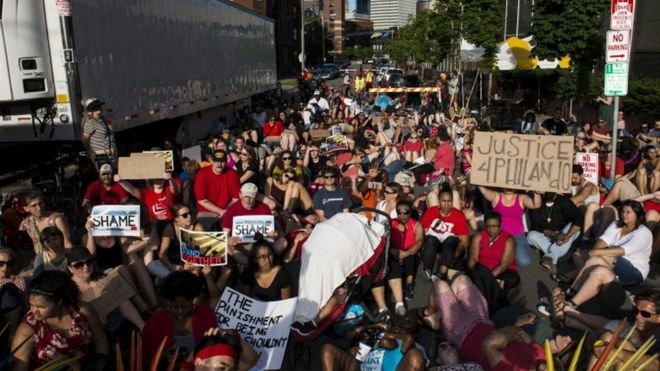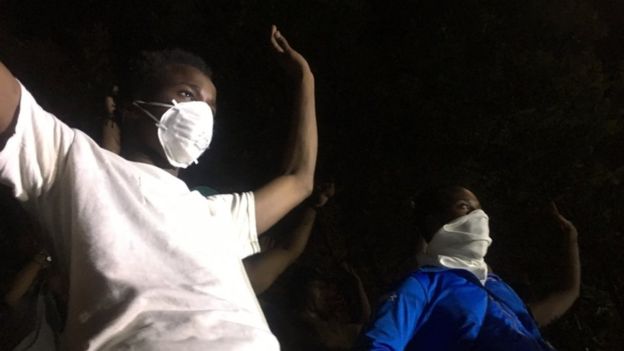US police shootings: Protests spread with dozens of arrests
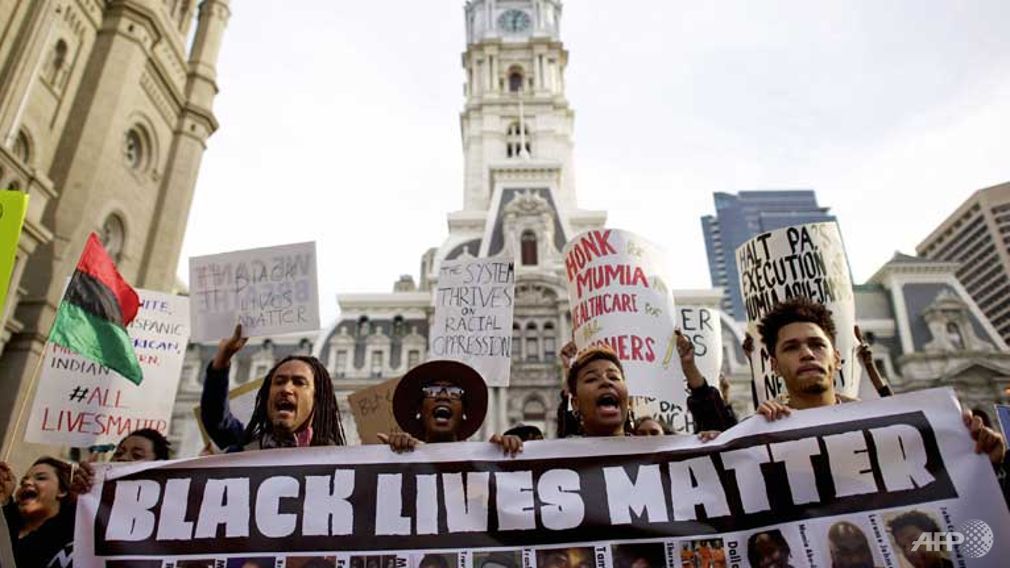
Protests continue to spread across US cities against the killing of black men by police, following recent deaths in Minnesota and Louisiana.
Roads were blocked and missiles thrown in Minnesota, while armed New Black Panther Party members confronted police in Baton Rouge, Louisiana.
Dozens of arrests have been made but the rallies were mostly peaceful.
The situation is also tense in Dallas, where five officers were killed by a black man during a protest rally.
Security levels were raised at the police HQ after anonymous threats were received but an all clear was given after a search of a car park for a "suspicious person".
The protests against police killings were sparked by the deaths of Philando Castile in Minnesota and Alton Sterling in Louisiana.
In St Paul, Minnesota, overnight, fireworks, bottles and rocks were thrown at police as the demonstration closed a main interstate highway, causing gridlock.
This is the fifth night of protests in Baton Rouge where there is not just anger, there is rage.
Each night the gathering has intensified and police have responded with officers in riot gear. The two sides faced each other, often blocking the main highway outside police headquarters.
Occasionally the force would line up and rush into the crowd to make several arrests. Earlier, hundreds marched to the Louisiana State Capitol and stood on the steps with clenched fists raised up high — a salute to black power.
Police said some officers had been hurt by fireworks and a number of arrests made. Demonstrators said police fired tear gas and rubber bullets.
In Baton Rouge, several hundred protesters gathered outside the police department shouting "No justice! No peace!" and also at the convenience store where Alton Sterling was shot.
There was also tension as armed members of the New Black Panther Party stood face to face with officers in riot gear. Louisiana law allows weapons to be carried openly.
Dozens of people were reported to have been arrested and at least two firearms confiscated.
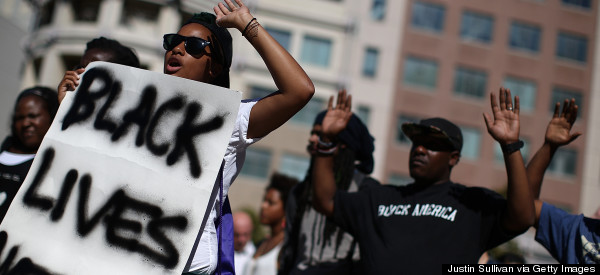
OAKLAND, CA — AUGUST 14: Demonstrators hold their hands up during a moment of silence on August 14, 2014 in Oakland, California. Hundreds of demonstrators observed a national moment of silence in solidarity with police brutality victims including 18-year-old Michael Brown, an unarmed teen fatally shot by police in Ferguson, Missouri. (Photo by Justin Sullivan/Getty Images)
Baton Rouge protester Marie Flowers told Associated Press: "Black boys are being killed and this is just the culmination of what has been going on for decades."
Several hundred protesters blocked roads and bridges in San Francisco and Fresno in California, hundreds more protested peacefully in West Palm Beach, Fort Lauderdale and Miami in Florida.
In New York, at least 20 people were arrested as hundreds of protesters marched through through Manhattan.
Protester Lorena Ambrosio told Reuters: "I'm feeling very haunted, very sad and just angry that black bodies just keep piling and piling up."
A "Weekend of Rage" called in Philadelphia saw a six-hour march by a multi-racial crowd. One protester told an officer: "Without the uniform and badge, you are just like us," AP reported.
Other protests took place in Nashville, Indianapolis and Washington DC.
The protests have continued despite an effort by President Barack Obama to soothe the tension.
On a trip to Europe, he said: "First of all, as painful as this week has been, I firmly believe that America is not as divided as some have suggested.
"When we start suggesting that somehow there's this enormous polarisation, and we're back to the situation in the 60s, that's just not true. You're not seeing riots, and you're not seeing police going after people who are protesting peacefully."
'Kill white people'
On Thursday, five white police officers were shot dead by a black man, Micah Johnson, during a protest rally against the police killings. Seven other officers and two civilians were injured.
Johnson, who was himself killed during the assault, supported black militant groups who encouraged violence against police.
Dallas police chief David Brown said Johnson had told a negotiator that he had wanted to kill white people, especially white police officers, because he was angry about the recent shootings of black men by police.
Johnson, 25, who officials say acted alone, was killed by remotely detonated explosives that were sent into a car park where he had taken refuge after the shootings.
Политика конфиденциальности | Правила пользования сайтом
